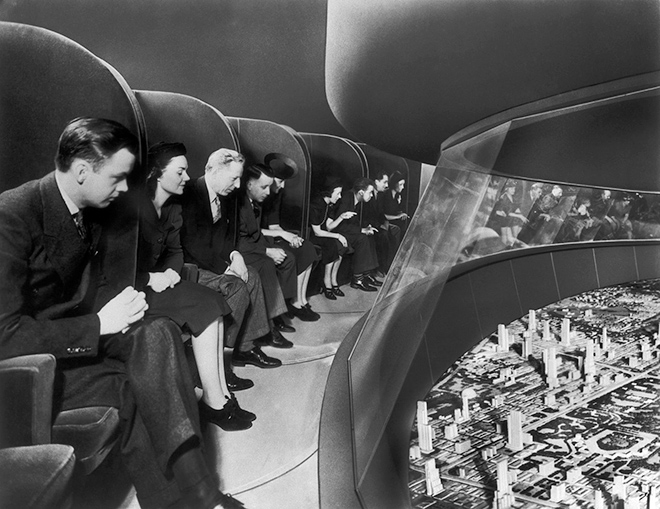I’d be happy to wager there have never in our history been more intelligent people toiling in the area of futurism. They may formally identify as economists or political scientists or technologists rather than futurists, but there’s a steady deluge of books and papers on the promise and perils of tomorrow, which contain advice on how we can maximize the former and minimize the latter.
This crowded field goes unmentioned in Farhad Manjoo’s New York Times column, which paints a dire picture of futurism in a post-Toffler world. The writer is absolutely correct to call out the U.S. government for ignoring to a good extent the chorus of clarion calls, protected by gerrymandering from the consequences of myopia. The present (e.g., infrastructure) is barely acknowledged let alone the next wave. I do believe, however, that the critical mass of thinkers in this area will ultimately serve us well, even in the recalcitrant public sector, which, as always, is prone to the sweep of history.
The opening:
All around, technology is altering the world: Social media is subsuming journalism, politics and even terrorist organizations. Inequality, driven in part by techno-abetted globalization, has created economic panic across much of the Western world. National governments are in a slow-moving war for dominance with a handful of the most powerful corporations the world has ever seen — all of which happen to be tech companies.
But even though these and bigger changes are just getting started — here come artificial intelligence, gene editing, drones, better virtual reality and a battery-powered transportation system — futurism has fallen out of favor. Even as the pace of technology keeps increasing, we haven’t developed many good ways, as a society, to think about long-term change.
Look at the news: Politics has become frustratingly small-minded and shortsighted. We aren’t any better at recognizing threats and opportunities that we see emerging beyond the horizon of the next election. While roads, bridges, broadband networks and other vital pieces of infrastructure are breaking down, governments, especially ours, have become derelict at rebuilding things — “a near-total failure of our political institutions to invest for the future,” as the writer Elizabeth Drew put it recently.
In many large ways, it’s almost as if we have collectively stopped planning for the future. Instead, we all just sort of bounce along in the present, caught in the headlights of a tomorrow pushed by a few large corporations and shaped by the inescapable logic of hyper-efficiency — a future heading straight for us. It’s not just future shock; we now have future blindness.•

